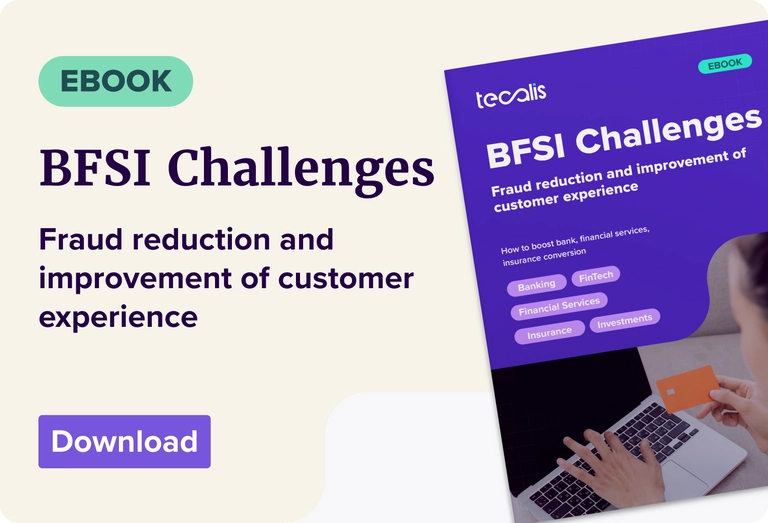Index
Get the latest news right in your inbox
In all markets, the insurance industry meets regularly to analyze industry trends and create synergies that bring value to all players. It is crucial to have feedback from agents, brokers and intermediaries, who are in direct contact with the customer.
Insurance meeting events are emerging as important regional meetings to work on new initiatives and debate the immediate future of the insurance sector in this activity. We will review the trends, keys and conclusions of events in which industry leaders and professionals were hand in hand defining new projects:
Regulatory developments affecting the insurance industry
The next steps for companies supporting the industry will focus on bringing insurer and brokerage systems in line with regulations as users interact with them in an easier, safer and more personalized way.
Electronic notifications and digital signatures have transformed dozens of everyday processes in the industry: from SEPA mandates, SEPBLAC compliance, expert opinions or claims management to expert opinions, policy renewals, parts or procedures related to the RGPD.
Among the new regulations that will affect the industry are:
- IFRS 17: This international financial accounting standard, which is expected to come into force in 2024, establishes a new framework for accounting for insurance contracts. IFRS 17 aims to improve the comparability and transparency of insurance companies' financial information. In this regard, electronic signatures are helping to meet its standards.
- General Data Protection Regulation (GDPR): this European regulation, which is nothing new, came into force in 2018. It is all familiar and establishes a regulatory framework for the protection of personal data. The GDPR applies to all companies that process personal data of European Union countries citizens, including insurance companies. The challenge lies in automating its compliance and reviewing that the policy is being guarded according to its standards, something that is still pending.
- Insurance and Reinsurance Distribution Law: This European law, which came into force in 2023, regulates the distribution of insurance and reinsurance in Europe. The law aims to improve consumer protection and increase transparency in the insurance market. Identity verification and Know Your Customer (with AML controls) are aiding compliance.
DORA Regulation: DORA (Digital Operational Resilience Act) is a European regulation that aims to strengthen the digital resilience of the financial sector. It is expected to come into force in 2025. It will have a significant impact on the insurance sector, as companies will be obliged to comply with a series of requirements to ensure the security and continuity of their operations in the event of disruptions or cyber attacks. It will be mandatory to identify and assess the risks of ICT used by insurers, implement measures to mitigate risks in all types of digital operations in the insurance sector and supervisory authorities will have to be notified of security incidents. The support of RegTech is expected to fully address this issue for insurers and other players in the sector.


eIDAS 2 and EUDI Wallets
eIDAS 2 will have a significant impact on the insurance sector, as it will enable companies to offer new products and services based on digital identity. Some of the main advantages of eIDAS 2 for the insurance sector are:
- Increased security and trust: eIDAS 2 introduces new security requirements for electronic identification and trust services, especially in financial services such as insurance, hand in hand with AML6/7. This will help to increase consumer confidence in online services in the insurance sector.
- Increased efficiency: Electronic identification of clients will be facilitated, which is essential for life-risk insurance and other verticals, enabling insurance companies to streamline their processes and reduce costs.
- New products and services: The new regulations will enable insurance companies to offer new products and services based on digital identity, such as personalized insurance policies, even more agile and risk-free on/off services or telecare services.
To take full advantage of the benefits of eIDAS 2, insurance companies must adapt their systems and processes to the new eIDAS 2 requirements, train their staff on the new systems and have digital identification partners to be able to use digital wallets correctly.
Collaborating with other companies in the insurance industry to develop joint solutions and explore other opportunities is key for the insurance industry to innovate and offer better products and services to its customers.
Capable mediation in the insurance sector: agent portals
Agent portals have taken on a major role, being online platforms that insurance companies make available to their insurance agents and brokers to facilitate the management of their business.
These portals offer a wide range of functionalities that allow intermediaries to access information and documentation. They can find all commercial information, such as tariffs, general and specific policy conditions, product manuals, etc. They can also offer access to technical documentation, such as forms, guides and circulars.
From them, quotes are made and policies are issued online, streamlining the process and reducing waiting time for clients. The electronic signature should have more impact, seeing that not everyone has it integrated or needs to optimize it. Agent portals allow brokers to manage their clients' policies, such as making amendments, cancellations, endorsements, etc. They can also provide access to information on policy status, maturities and claims.
Therefore, these tools, which are now extremely important, can provide access to online training, marketing and sales tools to help intermediaries improve their business.
RegTech solutions: before, during and after the insurance contract
It is expected to continue driving the implementation of RegTech solutions in the insurance industry because the industry trusts them and knows it needs them. The main objective of the players has been to meet with industry peers to work on innovations that are already being used by industry leaders and that are bringing them great results in all areas.
In Tecalis' participation in regional events such as Insurance Week in Spain, customer management platforms (Customer Hub), automated risk management and anti-fraud controls (DDC, KYC and AML) can be found in instants to be able to activate policies and sign contracts in seconds (eSignature).
"The insurance industry has understood the importance and necessity of having digital tools to cover its three main challenges: to comply with the standards set by regulators and new regulations in constant change (such as eIDAS2, the European Wallet or PSD3), to offer a hyper-personalized, simple and affordable service to its customers (with new possibilities and products) and to deliver to its teams, agents and brokers the best digital tools to work agilely."
Isidoro Martínez, CEO & Founder Tecalis.


The opinion of insurance industry experts
The outlook for the insurance market in the immediate future is generally positive, although there are some risks and uncertainties to be taken into account. Industry experts agree that the main trends that will mark the near future will be:
- Market growth: The global insurance market is expected to grow, driven by economic recovery, increased insurance penetration in emerging markets, and growing demand for innovative insurance products.
- Digitalization: Digitalization will continue to be a key trend in the insurance sector, with companies investing in new technologies such as artificial intelligence, blockchain and big data to improve efficiency, customer experience and decision making.
- Personalization: Consumers will increasingly demand personalized products and services, which will force insurance companies to develop solutions tailored to the specific needs of each customer.
- Sustainability: Sustainability is becoming an increasingly important factor for consumers and companies, which will drive demand for insurance products that take into account environmental and social impact.
- Cybersecurity: Cybersecurity will continue to be a major concern for the insurance industry, with companies investing in measures to protect their systems, potential AML fraud and data from cyber attacks.
Some of the risks and uncertainties that could affect the insurance market in the future include economic volatility, drastic regulatory changes in large markets such as the European Union, and the increased frequency and intensity of natural catastrophes, which could affect insurance premiums and the profitability of the industry.
Tecalis and its value proposition for insurers and brokerage firms
Tecalis is a leading RegTech solutions company that offers unique value to the insurance industry. Through its wide range of solutions, Tecalis helps insurance companies and brokerages to optimize, simplify, streamline and protect all processes, from the first contact with the customer to the signature or renewal of the policy. Tecalis' main solutions for the insurance sector include:
- Digital Onboarding (KYC/AML/Risk): Tecalis offers a complete solution for digital onboarding management, including customer identity verification (KYC), anti-money laundering (AML) and risk assessment.
- Electronic Signature (Digital contracting and certified electronic notifications): Allowing the electronic signature of contractual documents and the sending of certified electronic notifications, with total security and legal validity insurance contracts are sealed and validated to avoid non-payments or premium refunds.
- Marketing (Customer Hub - Agent and Customer Portal): Acting as a centralized portal for customer and policy management Customer Hub also counts as an Agent Portal to facilitate the management of your customer portfolio.
With more than 10 years of experience in the insurance market, Tecalis has a broad customer base and top-tier partners in more than 20 countries. Its solutions are designed to solve the insurance industry's main challenges, including cost and time reduction, improved customer experience and seamless security.
























